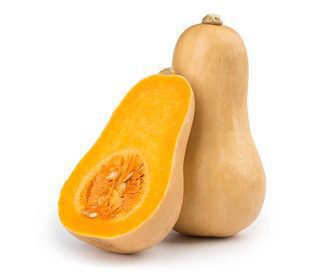

Squash, also known as a vegetable, is a nutritious fruit for dogs. It has many varieties, including summer and winter types, that are high in vitamins and minerals like antioxidants, potassium, fiber, and folate. These nutrients are essential for a dog’s health and can help prevent illnesses such as cancer, arthritis, and heart disease.
Squash also contains vitamin A, B6, C, vitamin K, vitamin E, and antioxidants that protect a dog’s body from free radicals. However, the seeds and peel can be a choking hazard for dogs, and excessive consumption can cause digestive issues like vomiting, diarrhea, and stomach upset. Squash is affordable and easy to access and can be served by removing its skin and seeds and cutting it into bite-sized pieces. It’s best to cook it using any of the recommended methods like boiling, steaming, roasting, or grilling but without using seasoning or spices.
Squash is part of the fruit family, but is commonly cooked and consumed as a vegetable. There are many varieties of squash, including winter and summer types. Squash is rich in vitamins A, B6, and C, as well as folate, magnesium, riboflavin, and fiber. These nutrients are essential for a dog’s health and can help prevent illnesses such as heart disease, cancer, and arthritis. Squash is also a good source of potassium, vitamin K, vitamin E, and antioxidants, which can protect the body from free radicals.
The seeds and peel of most squash can be a choking hazard for dogs. Raw squash can be difficult for dogs to digest, and excessive consumption may lead to digestive issues such as vomiting, diarrhea, and stomach upset.
To serve squash to your dog, remove the skin and seeds and cut it into bite-sized pieces. Cooking methods such as boiling, steaming, roasting, or grilling are recommended, and it’s best to avoid using seasoning or spices.
Squash is a nutritious food for dogs, as it contains a variety of vitamins and minerals. Different types of squash have varying nutritional profiles, but all are high in antioxidants, fiber, potassium, and vitamins.
If you're looking for alternative options for your dogs, you can consider carrots and green beans. Carrots contain vitamin A, fiber, and potassium, while green beans contain protein, fiber, iron, and vitamins A, C, and K. Both options can be served raw or cooked and are safe for dogs in moderate quantities.
Have you ever served squash to your dog? How did they like it? Don't hesitate to share your pet's experience. Remember to always consult with your veterinarian about your dog's dietary needs and preferences.
Give your furry friend a happy and healthy life, one meal at a time!